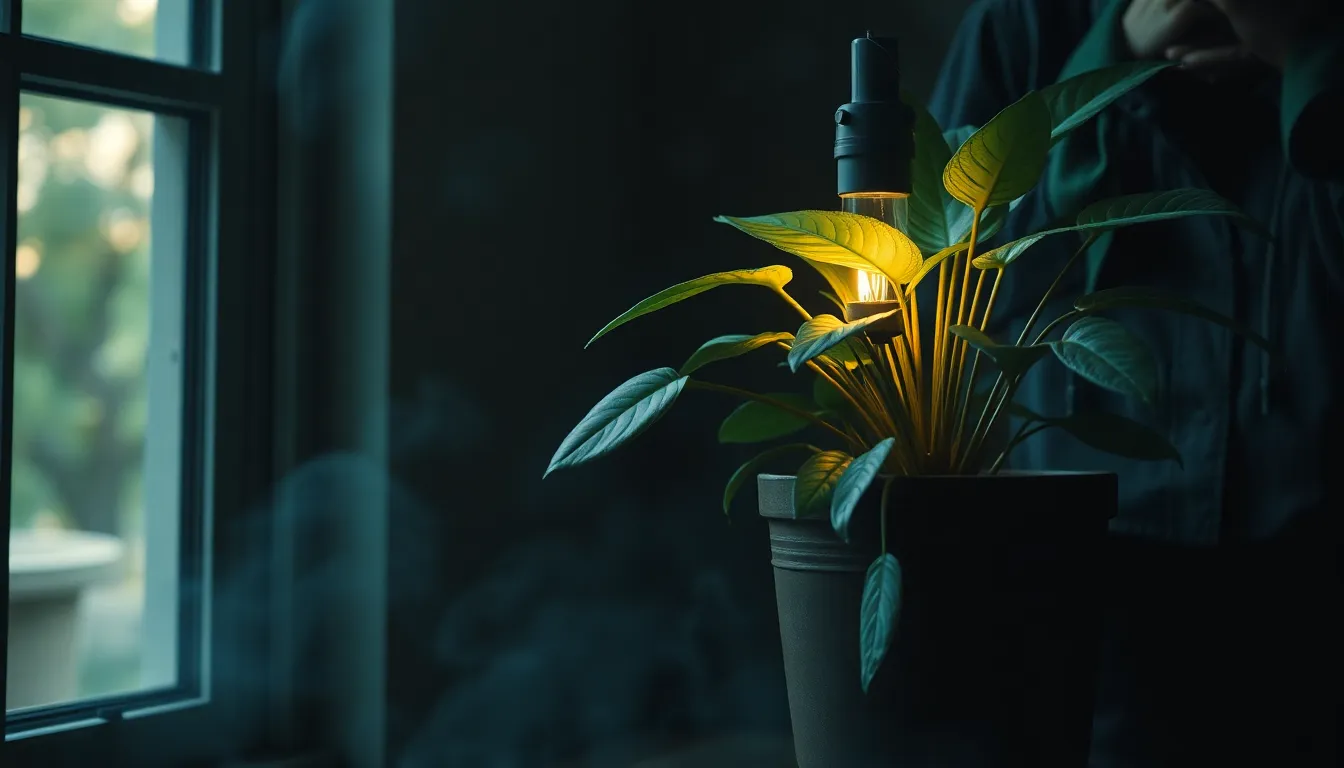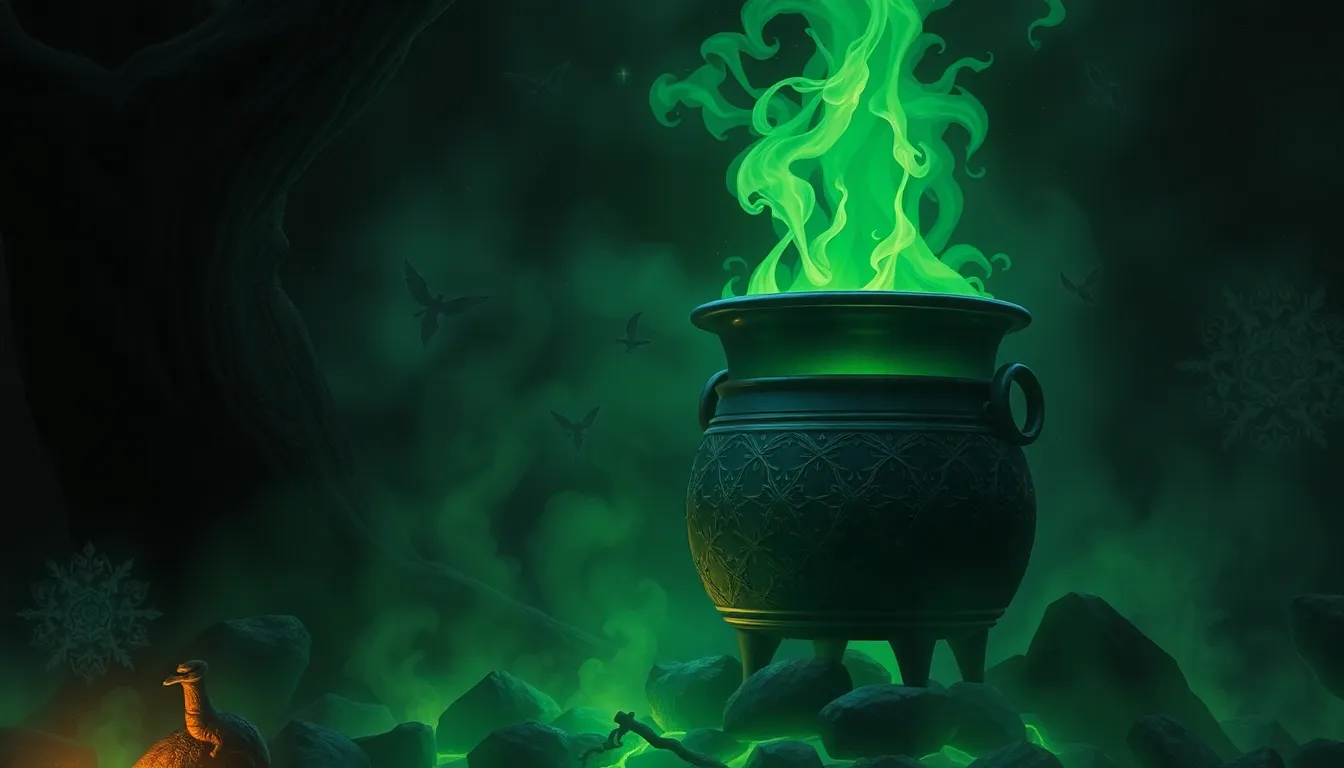Is Your Houseplant Haunted? The Myths of Indoor Plants Explained
Introduction: The Allure of Houseplants
In recent years, houseplants have surged in popularity as people seek to bring nature into their homes. From the vibrant green of a Monstera to the delicate beauty of a peace lily, these plants not only enhance the aesthetic of living spaces but also contribute to mental well-being. However, alongside this trend has emerged a curious notion: are some houseplants haunted? This article delves into the myths surrounding haunted houseplants, exploring the cultural significance, common misconceptions, and the science behind plant behavior.
The Cultural Significance of Plants in Folklore
Throughout history, plants have held significant meaning in various cultures, often intertwined with beliefs about the supernatural. Many societies regard certain plants as sacred or as vessels for spirits. Here are a few notable examples:
- Bamboo: In Chinese culture, bamboo is associated with resilience and strength, often believed to house benevolent spirits.
- Willow Trees: Commonly linked to death and the afterlife, willow trees are thought to harbor the spirits of the departed in various folklore.
- Herbs: Many herbs, such as sage and rosemary, are used in rituals to ward off evil spirits and purify spaces.
These cultural beliefs contribute to the idea that plants can be more than mere decorations, potentially serving as conduits for spiritual energy.
Common Myths About Haunted Houseplants
Several myths circulate regarding haunted houseplants, often fueled by anecdotal evidence and cultural stories. Some of the most prevalent myths include:
- Plants can harbor spirits: This myth suggests that the energy of deceased individuals can linger in the soil or the plant itself.
- Plants have personalities: Some believe that plants can exhibit moods or personalities, reacting to the energy of their caretakers.
- Plants can communicate: Some folklore posits that plants can send messages to those who care for them, often through growth patterns or wilting.
These myths often originate from a mixture of cultural beliefs, personal experiences, and a human tendency to anthropomorphize nature.
Signs Your Houseplant Might Be “Haunted”
Many plant owners report unusual behaviors in their houseplants, leading them to wonder if their plants are haunted. Here are some signs that people often associate with “haunted” plants:
- Wilting: A plant that wilts unexpectedly may be considered haunted, but this can often be a sign of overwatering or underwatering.
- Unusual growth: If a plant grows in an erratic manner, it may raise eyebrows, but environmental factors likely play a role.
- Sudden leaf drop: Losing leaves suddenly can be alarming, yet it often results from stress rather than supernatural causes.
While these signs can lead to speculation, it’s essential to consider the natural causes behind plant behavior rather than jumping to supernatural conclusions.
Scientific Explanations for Plant Behavior
To truly understand plant behavior, one must look at the biological and environmental factors that influence growth. Here are some key elements that can affect indoor plants:
- Light: Insufficient or excessive light can lead to stunted growth or wilting.
- Water: Overwatering or underwatering is a common issue that can cause dramatic changes in plant health.
- Pests and diseases: Infestations or fungal infections can result in strange growth patterns and unhealthy plants.
Understanding these factors can debunk the notion that supernatural forces are at play in a plant’s health.
The Psychology of Believing in Haunted Plants
Belief in haunted plants often stems from psychological factors. The human mind has a natural inclination to find patterns and meanings in the world around us. Environmental stressors, such as anxiety and isolation, can amplify these beliefs. When people experience stress, they may look for explanations for their feelings, sometimes attributing them to external factors like plants. This phenomenon can lead to:
- Personification of plants: Assigning human traits to plants can create a deeper emotional connection, leading to the belief that they have personalities or spirits.
- Projection of feelings: Owners may project their own fears or anxieties onto their plants, interpreting changes as supernatural occurrences.
Debunking the Myths: Expert Opinions
Experts in botany and psychology often provide insights that debunk the myths surrounding haunted plants. According to Dr. Emily Green, a botanist at the University of California, Plants do not possess consciousness or emotions. Changes in their behavior are typically a response to environmental factors. Additionally, psychologist Dr. Mark Thompson states, Believing in haunted plants can be a reflection of one’s mental state. It’s essential to address underlying anxieties rather than attributing them to supernatural beliefs.
Caring for Your Houseplants: Tips for a Healthy Environment
To ensure your houseplants thrive and to alleviate any concerns about their health, consider the following care tips:
- Provide adequate light: Research the light requirements for your specific plants and place them accordingly.
- Water appropriately: Check soil moisture before watering; a moisture meter can help determine the right timing.
- Monitor for pests: Regularly inspect your plants for signs of pests and treat them promptly.
- Fertilize: Use appropriate fertilizers to provide essential nutrients, especially during the growing season.
The Benefits of Indoor Plants Beyond the Supernatural
Houseplants offer numerous benefits that extend far beyond any supernatural beliefs. These benefits include:
- Mental health improvement: Studies show that caring for plants can reduce stress and improve mood.
- Enhanced air quality: Many indoor plants can purify the air by removing toxins and increasing oxygen levels.
- Increased productivity: Having plants in workspaces has been linked to improved focus and productivity.
Conclusion: Embracing the Magic of Nature Without Fear
In conclusion, while the idea of haunted houseplants can be intriguing, it is essential to separate myth from reality. Understanding the cultural significance, debunking common myths, and recognizing the scientific explanations behind plant behavior can help us appreciate these green companions for their beauty and the benefits they provide. Rather than fearing haunted plants, let us embrace the magic of nature and the joy that houseplants bring to our lives.




